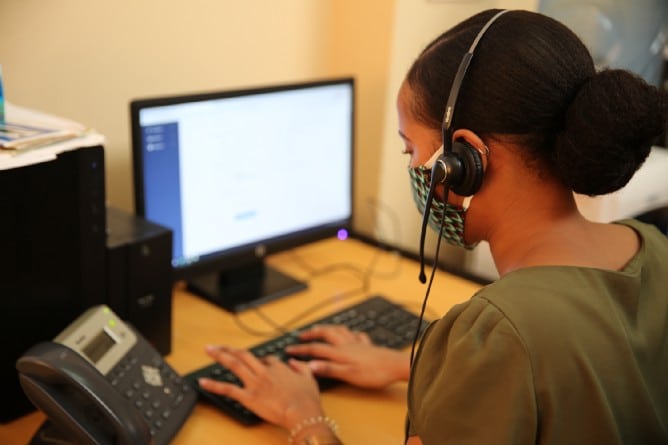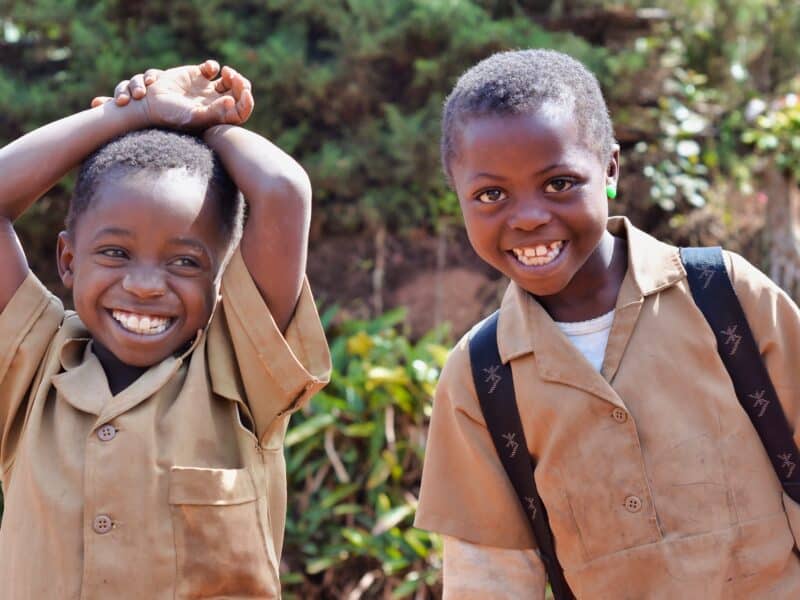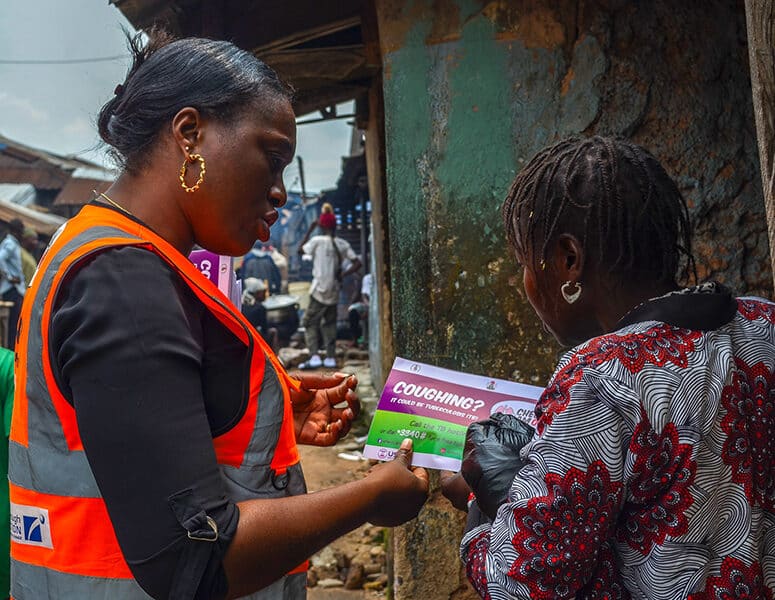It’s 15 minutes past midnight and while most people ended their workday hours earlier, Euclides Osias is at his post, monitoring phone lines and coaching his staff.
Osias is a shift manager at Alôvida, the Mozambique Ministry of Health’s telephone hotline providing medical-related information to Mozambicans throughout the country in six major Mozambican languages. Pre-COVID, Alôvida operated from 8 a.m. to 10 p.m., responding to approximately 300 phone calls per day from callers across the entire country. By mid-March, the call volume increased to 750 a day.
With the increased call volume and new questions related to COVID-19, Alôvida’s operators were facing increasing challenges. The Johns Hopkins Center for Communication Programs, supported by USAID, was able to provide the team with the expertise they needed to expand their operations. Thanks to many years of health communications experience in Mozambique, past support in integrating Alôvida within the Ministry of Health and a strong understanding of the Alôvida system, CCP’s Breakthrough ACTION project was able to quickly respond.
“Using our expertise to help limit the spread of COVID-19 in Mozambique is the most important thing we can do at this moment,” says Patrick Devos, CCP’s country representative in Mozambique.
In Mozambique, radio and television are the primary ways that information is shared. With only 17 percent internet penetration in Mozambique and only eight percent of the population on social media, the telephone – especially the Alôvida hotline – has become the most important means of two-way communication.
Mozambicans have relied on its operators for information related to HIV/AIDS since it was initially created by the Fundação para Desenvolvimento da Comunidade (FDC) in 2001. Its role in providing public health information only increased when, in 2012, it was integrated as a service from the Ministry of Health in partnership with FDC, and expanded to provide information related to malaria, tuberculosis, and other health care issues.
The increased demand for the services of Alôvida began in March when the ministry launched a major communications campaign, with COVID-19 messages online, through television, community radio, billboards, text messages and even bank machines. Each message included the contact information for Alôvida, further increasing call volume and putting a strain on the system. Soon, callers were reporting long wait times and even unanswered calls.
“Our goal at Alôvida is to ensure that anyone who has a question related to COVID-19 can get an accurate and timely answer,” Osias says.
With the staffing challenge now solved, USAID and CCP are analyzing the call data from Alôvida. Many callers want more information on COVID-19 symptoms, what to do in case of exposure, and clarity on rumors that circulates in communities across the country. Because Osias and his team at Alôvida are hearing from people in communities throughout the country, they know what information is needed and what potentially dangerous misinformation needs to be addressed.
“The battle against COVID-19 doesn’t just happen in health clinics, it happens over the phone, too,” Osias says.
Collaborating with VillageReach, a key collaborator with Mozambique’s Ministry of Health on issues pertaining to medical logistics and technology solutions for efficient and effective information sharing related to COVID-19, USAID and CCP are now helping Alôvida improve and increase its data collection, and analyze the results to inform the national response to the pandemic and create messages for the ministry’s social media platform, radio programs, and other methods of mass communications.
Mozambique has had 9,398 COVID-19 cases since the pandemic began, according to Johns Hopkins University’s COVID Dashboard.
A version of this story first appeared on Medium.





